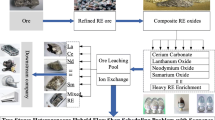Abstract
As an important optimisation problem with a strong engineering background, stochastic flow shop scheduling with uncertain processing time is difficult because of inaccurate objective estimation, huge search space, and multiple local minima, especially NP-hardness. As an effective meta-heuristic, genetic algorithms (GAs) have been widely studied and applied in scheduling fields, but so far seldom for stochastic cases. In this paper, a hypothesis-test method, an effective methodology in statistics, is employed and incorporated into a GA to solve the stochastic flow shop scheduling problem and to avoid premature convergence of the GA. The proposed approach is based on statistical performance and a hypothesis test. It not only preserves the global search ability of a GA, but it can also reduce repeated searches for those solutions with similar performance in a statistical sense so as to enhance population diversity and achieve better results. Simulation results based on some benchmarks demonstrate the feasibility and effectiveness of the proposed method by comparison with traditional GAs. The effects of some parameters on the performance of the proposed algorithms are also discussed .
Similar content being viewed by others
References
Garey MR, Johnson DS (1979) Computers and intractability: a guide to the theory of NP-completeness. Freeman, San Francisco
Baker KR (1974) Introduction to sequencing and scheduling. Wiley, New York
Nawaz M, Enscore E Jr, Ham I (1983) A heuristic algorithm for the m-machine, n-job flow-shop sequencing problem. Omega 11(1):91–95
Koulamas C (1998) A new constructive heuristic for the flowshop scheduling problem. Eur J Oper Res 105:66–71
Ogbu FA, Smith DK (1990) The application of the simulated annealing algorithm to the solution of the n/m/Cmax flowshop problem. Comput Oper Res 17(3):243–253
Osman IH, Potts CN (1989) Simulated annealing for permutation flow-shop scheduling. Omega 17(6):551–557
Reeves CR (1995) A genetic algorithm for flowshop sequencing. Comput Oper Res 22(1):5–13
Wang L, Zheng DZ (2003) A modified evolutionary programming for flow shop scheduling. Int J Adv Manuf Technol 22(7–8):522–527
Nowicki E, Smutnicki C (1996) A fast tabu search algorithm for the permutation flow-shop problem. Eur J Oper Res 91:160–175
Grabowski J, Pempera J (2001) New block properties for the permutation flowshop problem with application in tabu search. J Oper Res Soc 52:210–220
Dimopoulos C, Zalzala AMS (2000) Recent development in evolutionary computation for manufacturing optimization: problems, solutions, and comparisons. IEEE Trans Evol Comput 4(2):93–113
Pinedo M (1995) Scheduling theory, algorithms, and systems. Prentice-Hall, Englewood Cliffs, NJ
Kamburowski J (2000) On three-machine flow shops with random job processing times. Eur J Oper Res 125:440–449
De P, Ghosh JB, Wells CE (1992) Expectation-variance analysis of job sequences under processing time uncertainty. Int J Prod Econ 28:289–297
Honkomp SJ, Mockus L, Reklaitis GV (1999) A framework for schedule evaluation with processing uncertainty. Comput Chem Eng 23(4–5):595–609
Balasubramanian J, Grossmann IE (2002) A novel branch and bound algorithm for scheduling flowshop plants with uncertain processing times. Comput Chem Eng 26(1):41–57
Gutjahr WJ, Hellmayr A, Pflug GC (1999) Optimal stochastic single-machine-tardiness scheduling by stochastic branch-and-bound. Eur J Oper Res 117(2):396–413
Luh PB, Chen D, Thakur LS (1999) An effective approach for job-shop scheduling with uncertain processing requirements. IEEE Trans Robot Autom 15(2):328–339
Kouvelis P, Daniels RL, Vairaktarakis G (2000) Robust scheduling of a two-machine flow shop with uncertain processing times. IIE Trans 32(5):421–432
Tsujimura Y, Park SH, Chang IS, Gen M (1993) An effective method for solving flow shop scheduling problems with fuzzy processing times. Comput Ind Eng 25:239–242
Holland JH (1975) Adaptive in natural and artificial systems. University of Michigan Press, Ann Harbor
Goldberg DE (1989) Genetic algorithms in search, optimization and machine learning. Addison-Wesley, Reading, MA
Ho YC, Cassandras CC, Chen CH, Dai L Ordinal optimization and simulation. J Oper Res Soc 51(4):490–500
Liu X (1998) Introduction to statistics. Tsinghua University Press, Beijing
Wang L, Zhang L, Zheng DZ (2003) A class of order-based genetic algorithm for flow shop scheduling. Int J Adv Manuf Technol 22(11–12):828–835
Wang L, Zheng DZ (2003) An effective hybrid heuristic for flow shop scheduling. Int J Adv Manuf Technol 21(1):38–44
Wang L, Zheng DZ (2001) An effective hybrid optimization strategy for job shop scheduling problems. Comput Oper Res 28(6):585–596
Carlier J (1978) Ordonnancements a contraintes disjonctives. R.A.I.R.O. Oper Res 12:333–351
Author information
Authors and Affiliations
Corresponding author
Rights and permissions
About this article
Cite this article
Wang, L., Zhang, L. & Zheng, DZ. A class of hypothesis-test-based genetic algorithms for flow shop scheduling with stochastic processing time. Int J Adv Manuf Technol 25, 1157–1163 (2005). https://doi.org/10.1007/s00170-003-1961-y
Received:
Accepted:
Published:
Issue Date:
DOI: https://doi.org/10.1007/s00170-003-1961-y




